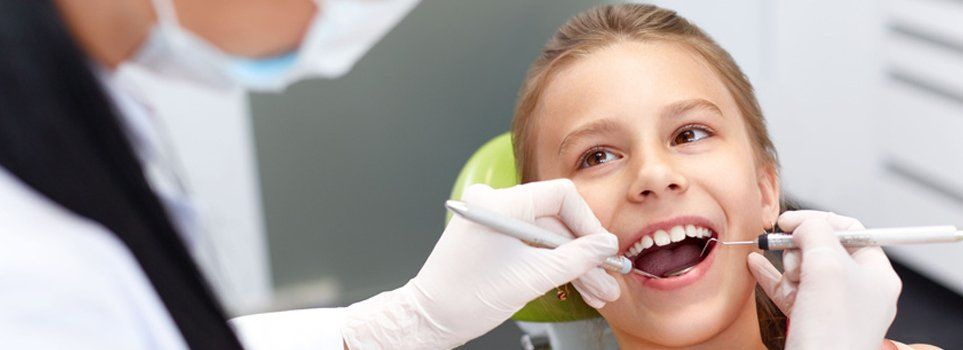Supporting copy for the Request Service
call out button.
Patient Information
Geetu Shokeen, DMD
Serving Pioneer Valley And The Surrounding Areas
413-863-2288
Serving Pioneer Valley And The Surrounding Areas

Helpful Information For New Patients
Our staff at Montague Dental Arts welcomes you to visit our practice! We look forward to helping you feel comfortable while we assist you with all of your dental needs. Please bring your insurance card and any X-rays or previous records from other dentists with you, and be prepared to spend about 90 minutes at your initial appointment.
Most Insurance Plans Accepted
We also accept most insurance plans and CareCredit for your convenience. Our office manager will gladly communicate with your insurance provider to determine the proper fees or co-payments for your visit.
Our office is also considered to be in-network with a number of common dental insurances. We can also assist you with your CareCredit application. Contact our team
today to take advantage of our one-year interest-free program. And, if you pay cash, you'll also receive an additional 5% OFF!
Some Frequently Asked Questions
1. How do I get rid of bad breath?
There are a number of reasons why people suffer from bad breath. Even though most people don't realize it, everyone has bad breath from time to time. In healthy people, bad breath is caused by microbial deposits on the tongue, especially at the back. According to studies, brushing the tongue can reduce bad breath by 70%. There are several causes of bad breath, including, morning time, poor oral hygiene habits, certain foods, periodontal (gum disease), dry mouth, tobacco products, dehydration and certain medical conditions.
To combat bad breath, it is imperative that you brush twice a day and practice good oral hygiene. If you're suffering from an extreme case of bad breath, get in touch with your dentist today!
2. How often should I brush or floss to keep my teeth healthy?
Brushing and flossing on a daily basis helps control plaque and bacteria that causes dental illnesses. In order to maintain optimum oral health, it is important to brush twice a day with an ADA approved soft bristle brush. This practice helps keep plaque and other contaminants away.
Plaque is a film of food debris, bacteria and saliva that sticks to the teeth and gums. The bacteria in plaque convert certain food particles into acid which cause tooth decay. If the plaque is not removed, it then turns into tartar (calculus). If not removed, plaque and calculus can begin to destroy the gums and bone, causing periodontal disease. Plaque formation and growth is a continuous occurrence and can be controlled by regular brushing, flossing and by using other dental aids. Brush at a 45-degree angle to the gums in a gentle, circular motion while making sure to feel the bristles on the gums.
3. Is it safe to get silver (amalgam) fillings?
The ADA, the Center of Disease Control (CDC), the World Health Organization and others support the use of silver (amalgam) fillings as safe, cost-effective and durable. According to the U.S. Public Health Services, only patients who have an allergy to any component in this type of filling should avoid it. Despite the countless millions of silver fillings used over the years, the ADA has fewer than 100 reported incidents reporting an allergy to components of this filling.
However, if you are allergic to them, there are numerous options including composite (tooth-colored) fillings, porcelain, and also gold fillings.
4. How often should I have a dental exam and cleaning?
Your dentist or dental hygienist may recommend a certain number of visits based on your individual condition. If not, you will need to get your teeth checked at least twice a year. Regular dental exams and cleaning visits are essential in preventing tooth decay and oral disease. At these visits, your teeth are cleaned and checked for cavities. Additionally, there are many other things that are checked and monitored to help detect, prevent, and maintain optimum oral health.
5. Is it possible to tell if I have gingivitis or gum disease?
Unlike tooth decay, which causes discomfort, it is possible to suffer from periodontal disease without knowing it. Four out of five people have periodontal disease and are not aware of it. Regular dental check-ups and periodontal examinations are very important and can help detect the problem before it becomes serious. It is usually painless during the early stages which is why it goes undetected in most cases.
Periodontal disease is caused by plaque, a sticky, colorless film of bacteria, food debris and saliva that is present on the teeth and gums. The bacteria then produce toxins (acids) which slowly destroy the bone. Regular brushing and flossing can help remove plaque and improve your oral hygiene.
6. Is it important to use dental floss?
Even though brushing of the teeth removes food particles and plaque from all tooth surfaces, the gaps between the teeth are not so easy to clean and are susceptible to periodontal disease. Flossing on a daily basis is the best way to clean between the teeth and under the gum line. Not only does flossing help clean these spaces, but, it also disrupts plaque colonies from building up.
Plaque is a sticky layer that forms on the teeth. This is a culmination of living bacteria, food particles and saliva. When plaque is not removed above and below the gum line, it hardens and turns into tartar which can cause inflammation in the gums and destroy the bone. This is the first sign of periodontal disease.
7. Can cosmetic dentistry help improve my smile?
If you're conscious about your smile and want to improve it, cosmetic dentistry is the right solution. Over the last decade, cosmetic dentistry has become very popular; not only due to the many advances in cosmetic dental procedures and materials but also due to the increased awareness of individuals towards maintaining good oral hygiene.
Through cosmetic dentistry, you can have a confident, healthier, whiter and more radiant smile. Depending on your needs, there are many dental procedures available to help improve your smile. Whether you're looking to restore a single tooth or get a full mouth make-over, cosmetic dentistry can help.
8. Can porcelain veneers improve my smile?
Porcelain veneers are thin shells of tooth-shaped porcelain that are individually crafted to cover the fronts of teeth. Since they are very durable and don't stain, they are a popular solution for those seeking to restore or enhance their smile!
Veneers may be used to restore or correct severely discolored or stained teeth, unwanted or uneven spaces, worn or chipped teeth, slight tooth crowding, misshapen teeth, teeth that are too small or large.
Getting veneers requires two visits, wherein during the first visit, a mold or impression is created which is then sent to a professional dental laboratory where each veneer is custom-made for your individual smile.
9. How can I deal with stained or discolored teeth?
As we age, the outer layer of the tooth enamel starts to fade and this makes our teeth appear darker and more yellow than white. Lifestyle habits such as smoking, drinking coffee etc. may also contribute toward this change. In some cases, teeth can lose color from taking certain kinds of medication as a child. Excessive fluoridation during tooth development can also cause teeth to become discolored.
Professional teeth whitening (bleaching), is a simple and non-invasive solution to your stained or discolored teeth. Even though over-the-counter products are also available, they are much less effective than professional teeth whitening treatment and may not be approved by the American Dental Association (ADA).
Call 413-863-2288 Today To Schedule Your Appointment!
Our team at Montague Dental Arts offers smile makeovers, Invisalign products, teeth whitening, crowns, bridges, experienced cosmetic dentistry
services, and more.
We are also proud members of the American Dental Association and the Massachusetts Dental Society.
About Our Business
Montague Dental Arts is a locally-owned and operated dental practice that has been in business since 1985.
In addition to having over 20 years of experience, we also offer FREE initial Invisalign consultations, offer financing options, and we accept CareCredit and most insurance plans.
Contact our team
today to schedule your appointment!
Contact Our Team
Montague Dental Arts
300 A Avenue
Turners Falls, MA 01376
Phone: 413-863-2288
Fax: 413-863-2289

Privacy Policy
| Do Not Share My Information
| Conditions of Use
| Notice and Take Down Policy
| Website Accessibility Policy
© 2024
The content on this website is owned by us and our licensors. Do not copy any content (including images) without our consent.
